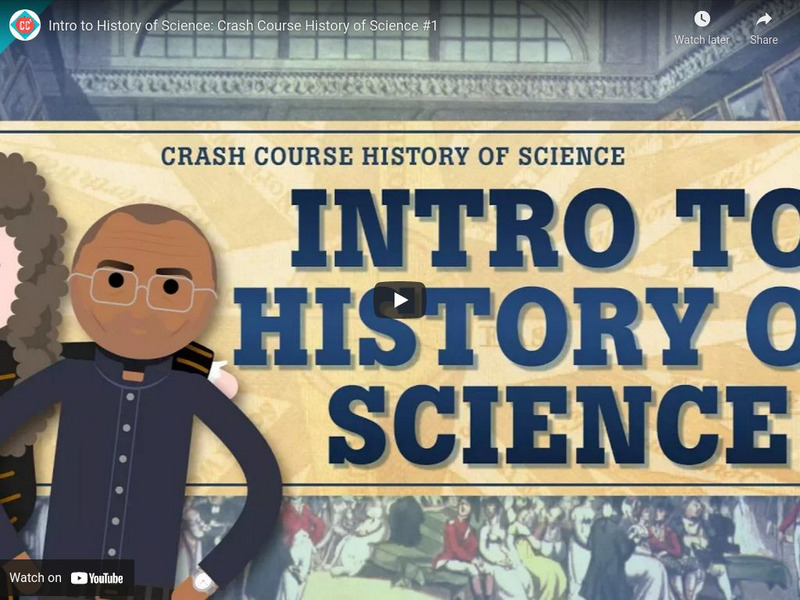TED Talks
Laura Snyder: The Philosophical Breakfast Club
In 1812, four men at Cambridge University met for breakfast. What began as an impassioned meal grew into a new scientific revolution, in which these men -- who called themselves “natural philosophers” until they later coined “scientist”...
Crash Course
The Presocratics: Crash Course History of Science
The Presocratics: Crash Course History of Science #2
Crash Course
Intro to History of Science: Crash Course History of Science
Intro to History of Science: Crash Course History of Science #1
Crash Course
Earth Science: Crash Course History of Science
It's Earth Science time!!!! In this field, natural philosophers were asking questions like, what’s up with fossils? Are they the remains of extinct organisms? Or are they so-called “sports of nature”—rocks that just happen to look like...
Crash Course
Newton and Leibniz: Crash Course History of Science
The standard story of the Scientific Revolution culminates with the long life of one man: Sir Isaac Newton—a humble servant of the Royal Mint, two-time parliamentarian, and a scientific titan whose name, along with Einstein’s, is...
Crash Course
The Scientific Methods Crash Course History of Science 14
Historically speaking, there is no one scientific method. There's more than one way to make knowledge. In this episode we're going to look at a few of those ways and how they became more of the "norm."
Crash Course
Crash Course History of Science #15: The New Anatomy
What is life? To try to answer that question, three tools stand out as being especially useful: A book, some experiments, and the microscope! In this video, trace the history of different theories about how our body works. [12:15]
Crash Course
Crash Course History of Science #14: The Scientific Methods
Historically speaking, there is no one scientific method. There's more than one way to make knowledge. In this episode, learn about three scientists and the methods they pioneered. Galileo's focus on rational comparison of theories about...
Crash Course
Crash Course History of Science #2: The Presocratics
Meet the Presocratics in this Crash Course video. Long ago, some philosophers worked very hard to separate myths from what they actually knew about nature. Thales theorized that everything in the world is made of water. Pythagoras was a...
Crash Course
Crash Course History of Science #1: Intro to History of Science
We've been asking big questions for a really long time and we've all wanted to explore how we've sought to answer those questions through the centuries. Questions like, "What is stuff?" and "Where are we?" have inspired people all over...
Khan Academy
Khan Academy: Early Modern: Margaret Cavendish, Part 1
In the first of two videos, Adela Deanova introduces Margaret Cavendish, an early modern English philosopher, and discusses the background to her critique of experimental philosophy. [4:05]





